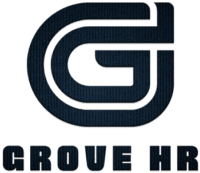The biggest mistake employees make during a performance review? Treating it like a passive evaluation instead of a two-way strategic conversation.
A performance review should never be a monologue. If all you’re doing is sitting there, nodding while your manager reads off bullet points and closes with a polite “Keep it up,” you’re missing a major opportunity.
Great performance reviews are a launchpad for clarity, growth, and alignment—but that only happens when you come prepared with real, thoughtful questions. Smart questions signal to your manager that you’re not just taking feedback but engaging with it.
They allow you to steer the conversation toward what matters most for your career development, not just your last quarter’s numbers.
1. What would make me a serious candidate for a promotion in this company?
Timing matters, of course. If you’re only six months into a new role, this might feel premature—but if you’re one year in and consistently hitting targets, this is a very fair question.
What to expect: A roadmap, not a green light. Your manager may lay out the expectations for the next role up, describe what they’ve seen in past promotees, or assign you new responsibilities to test your readiness. In some cases, they may redirect you toward lateral growth instead.
Be prepared for a strategic answer—this is often when future leadership candidates are quietly identified.
2. What are the technical or domain skills I should sharpen right now?
Don’t wait for your manager to list flaws. Show that you’re invested in growth by proactively asking where your skill gaps are—and don’t be vague. If you suspect you need to improve in analytics, backend code quality, or SEO planning, say so.
What to expect: Candid advice, ideally tailored to your role. Good managers will reference recent work to explain where you’ve plateaued and may recommend resources or even internal training.
They may also tell you where not to spend time—for example, “Don’t worry about learning Tableau; we’re moving to Power BI.”
3. How do you personally measure my progress over time?

Your KPIs are not the whole picture. Managers often weigh soft skills, initiative, and stakeholder feedback in their evaluations, even if they’re not on your dashboard.
What to expect: Some managers will reference quantifiable data—conversion rates, SLA compliance, etc.—while others will share more intangible signals like how you handle project setbacks or team dynamics.
Asking this question clarifies how your manager “keeps score,” helping you calibrate your efforts accordingly.
4. Have I fully met the expectations you set for me this quarter/year?
You may think you’ve crushed it—but unless you ask, you may never know which expectations your manager had in mind. This is not about fishing for praise; it’s about identifying gaps before they become blockers.
What to expect: A direct answer followed by examples. If the answer is “Yes,” follow up with, “What would overdelivering look like?” If “Not yet,” ask, “What’s the one thing I can focus on next to get there?”
5. What can I do to make your job easier?
View this post on Instagram
Yes, it might sound overly humble, but this is one of the most underrated questions you can ask. Managers are often overwhelmed, and employees who ease that load often become natural choices for mentorship or promotion.
What to expect: Your manager may mention reporting inefficiencies, lack of visibility into your projects, or cross-team coordination headaches.
They may not have thought about delegating certain tasks, but once you ask, you’ll often find opportunities to expand your scope.
6. What are some concrete ways I can better support the rest of the team?
This signals maturity and team-first thinking. You’re not just focused on individual metrics—you care about collaboration, morale, and overall team output.
What to expect: You may learn you’re dominating meetings unintentionally, or that newer hires look up to you and would benefit from informal mentorship.
Your manager might also suggest leading a small initiative or documenting tribal knowledge to benefit the team.
7. Can we talk about my compensation or the timeline for a raise?

Let’s be honest—this is one of the real reasons people show up to reviews with nerves. And it’s perfectly valid. The key is to tie it to specific outcomes or performance evidence rather than emotion or tenure.
What to expect: Raises and bonuses are often pre-determined ahead of reviews. So while your request may not yield instant change, it shows initiative. Your manager might outline a concrete success path (“If you hit X metrics in Q2, I’ll advocate for you in the next comp cycle”) or explain the organizational constraints.
Either way, you leave with clarity instead of silent frustration.
8. What should I be spending less time on? Where should I focus more?
This question digs into time allocation, which is rarely discussed in detail but has a huge impact. Misplaced focus is one of the top killers of productivity, and it’s easy to get stuck in routines that no longer match your company’s priorities.
What to expect: Insight into the shifting weight of your responsibilities. Your manager might suggest automating a weekly report, reducing time spent in planning meetings, or going deeper into fewer projects instead of juggling five at once.
9. What are the biggest strategic challenges our company or team is facing right now?
@erickimberling0 Team Struggles & Victory 🚀 We faced tough times & doubts. How did we persevere? We’ll explore moments where we felt stuck and how we overcame challenges. Discover the strategies that kept us moving forward and ultimately led to our success. #Teamwork #Challenges #Success #Motivation #OvercomingObstacles #GrowthMindset #Leadership #Innovation #Resilience #Determination ♬ original sound – Digital Transformation w/ Eric
Asking about the broader picture shows that you’re not just working inside your lane—you’re thinking like an owner. It gives context to company decisions and may reveal opportunities to contribute beyond your current role.
What to expect: This can open a more candid discussion than you’d expect. A good manager will appreciate your curiosity and may even share internal tensions, hiring constraints, or upcoming pivots. Use this insight to position your skills for higher-impact contributions.
10. What opportunities for professional development are available, and which would you recommend for me specifically?
This is more than asking for a course budget. You’re asking for your manager’s investment in your long-term potential. It could be internal mentorship, conference attendance, or project ownership.
What to expect: Some companies have formal budgets or LMS platforms (Learning Management Systems), while others rely on managers to approve ad-hoc development. Come prepared with a specific course or credential you’re eyeing, and explain how it benefits the team, not just you.
11. How can I improve [insert specific skill or behavior]?

Instead of vague questions like “How can I get better?”, aim for something concrete: presenting updates more clearly, handling objections in sales calls, improving stakeholder visibility, etc.
What to expect: Direct feedback and maybe even a mini-coaching session. If your manager has seen you struggle in this area, they may suggest role-playing, shadowing someone, or adopting a specific framework.
12. Which metrics matter most to senior leadership when they evaluate our team’s impact?
Managers often translate departmental work into executive-level scorecards you never see. By asking which two or three numbers the C-suite cares about this quarter, you gain a cheat sheet for prioritizing tasks that punch above their weight.
What to expect: Your manager might reveal that product-qualified leads or churn‐adjusted revenue weigh more than raw usage, or that on-time delivery is suddenly a board‐level metric. Once you know the scoreboard, you can spotlight your contributions in exactly the language leadership reads.
13. How has my role evolved over the past year, and where do you see it shifting in the next 12 months?

Job descriptions go stale faster than SaaS pricing pages. This question invites your manager to articulate the informal changes that have crept in—and to map future expectations before they surprise you.
What to expect: A candid timeline: perhaps your “individual-contributor” role has already drifted toward mentorship, or the company plans to spin up a new customer-success pod you could lead. You’ll walk away knowing whether your current trajectory lines up with company needs.
14. What resources or tools could help me work more efficiently or at a higher quality?
Most employees assume tools are frozen until budget season. Managers, on the other hand, often have discretionary spend or influence over procurement that they’ll unlock only when someone makes a clear, ROI-backed case.
What to expect: Specific suggestions (e.g., a Figma plugin, upgraded CRM seat, or dual-monitor setup) or a request that you draft a mini-business case. Either way, you’ve signaled initiative and gained a path to better leverage.
15. Are there upcoming cross-functional projects where my skills could add value?

Promotion velocity often hinges on visible, high-stakes projects that span departments. Volunteering early positions you as a problem-solver beyond your silo and increases the pool of leaders familiar with your work.
What to expect: Your manager might mention an imminent product-marketing launch, a compliance audit, or a data-clean-up sprint that needs extra horsepower. Even if you don’t get assigned immediately, you’ve planted a flag as “willing and able” for future collaborations.
Threading Them In
You don’t need to run through all 15 questions in order. Drop the new ones where they feel natural:
- Metrics that matter pair well after asking how your performance is measured.
- Role evolution dovetails with promotion talk.
- Resource requests belong after you and your manager diagnose efficiency gaps.
- Cross-functional opportunities fit right after discussing company-wide challenges.
Used thoughtfully, these questions turn a routine review into a strategic workshop—one that aligns personal growth, team goals, and organizational priorities in a single conversation.

